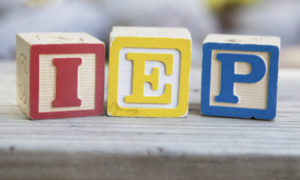
No one understands the magnitude of an autism diagnosis unless you’ve experienced it. There’s no way to prepare for such life-shattering news, and what follows is a multitude of feelings: sadness, fear, guilt, denial, and even relief. I felt all of the above and them some. We, as parents, have the difficult task of navigating through the murky waters of our feelings, while at the same time setting in place the very best interventions and treatments for our child. No wonder why it is said that mothers of autistic children experience chronic stress comparable to combat soldiers.
Here are the 5 steps that I believe could be advantageous to take in order to survive an autism diagnosis*:
1. Take Time to Grieve
The time period after an autism diagnosis feels like a race against the clock. Knowing that early intervention is key to achieving maximum progress and results, my first instinct was to dive right in. Looking back, I wish I had taken a moment to stop, breathe, and focus so that I wouldn’t have wasted so much time unable to get out of my bed each morning. Remember, this is a lifelong journey. A marathon, not a race.

While the stages of grief and mourning are universal, each person’s progression through can vary radically. Like a roller coaster, just when you think you hit a smooth patch, you run into a bump when you least likely expect it.
If you suppress your feelings of sadness and loss, you will find it bubbling over into another area of your life, like your marriage or parenting. So, as difficult as it may be, working through each stage of grief is not only important
2. Pick Your Team
One of the first and most important tasks is composing a comprehensive team that will provide support and treatment options.As the mom, you’re the team leader and call all the shots, but your teammates will include a wide array of doctors, specialists,

An all-star team could include:
- Primary Physician/Pediatrician
- Pediatric Neurologist
- Local Regional Center
- ABA Therapist
- Speech Therapist
- Occupational Therapist
Even the 1992 NBA All-Star team with Magic Johnson can’t cure autism. But, the doctors, therapists, and therapies you put in place will guide your journey, and help create foundational skills for your child to build on.
Autism will forever divide my life into a before and after. It nearly broke me – brought me to my knees – but just when I thought I’d succumb to weakness, I somehow managed to pull myself up and find my strength.
3. Know Your Rights
For many of us, an autism diagnosis is the beginning of a lifelong crusade. Because you are intimately aware of your child’s strengths and challenges, you are his/hers best advocate. This is a role you will play long into your child’s adulthood, so it’s best to armor ourselves as soon as possible for the battle ahead.

Your autistic child has a number of legal rights and protections, and being familiar with them will ensure that he or she has access to all supports and services.
Understanding the terminology and information surrounding your child’s rights is like learning a second language, but once you begin to understand the “lingo”, you’ll be speaking in tongues.
Let’s start with this basic glossary:
- IDEA: Individuals with Disabilities Education Act mandates that your child has the right to public education.
- FAPE: Free and Appropriate Public Education entitles your child to a public education that most appropriately relates to his or her special needs.
- LRE: Least Restrictive Environment dictates that your child must be placed in the environment wherein he or she has the greatest opportunity to participate in a general education setting with typically- developing children. This is commonly referred to as mainstreaming or inclusion, and can include accommodations and/or aids for your child.
- IEP: Individualized Education Plan ensures that your child gets individualized instruction that focuses on improving specific skills. It also lays out a specialized program that can include classroom instruction, supports, services, and accommodations that will help ensure your child’s progress in school.
Class dismissed.
4. Take Self-Care Seriously
This is a crazy life we lead, and it’s not easy being an autism mom. Since we’re always on duty, finding excuses not to practice self-care is easy. I fell backward into my grief after my son’s diagnosis, and was drowning in a pool of my unstoppable tears. It took years for me to swim out and understand that I couldn’t be an effective mom, raising happy and successful children, without taking the time to rekindle my spark and reclaim my passion.

The oxygen mask theory is not a myth… if you don’t take care of yourself first, it is impossible to take care of anyone else.
Once your mask is on, however, and you’re investing time and energy into yourself, you’re in a way better position to help those around you, as well.
It may seem counter-intuitive, and I say this with the utmost respect – stop being selfish and start taking care of yourself!
He is the hero of my heart, my greatest gift, and biggest lesson.
5. The Glass is Half Full

Now, this one is not for beginners. This one takes time, and decades to master.
We all understand the disadvantages that come hand in hand with an autism diagnosis, and sometimes when we are in the throes of this life, it’s hard to see beyond them. Eventually though, the hardships will be overshadowed by many unconventional benefits. After all, what could be better than raising an extraordinary child?
◈
Finding out that my child will live his whole life with a disability was the most heartbreaking experience of my life. But I’m here to say that, with a plan of action like the one above, you, too, can survive and flourish.
Autism will forever divide my life into a before and after. It nearly broke me – brought me to my knees – but just when I thought I’d succumb to weakness, I somehow managed to pull myself up and find my strength. Now I wake up every day with a renewed resolve to never give up, to never stop fighting.
I thought I lost myself, but it turns out that wasn’t the case at all. I actually found myself in a very beautiful and meaningful way.

All that really matters in the end is that I am his mom and he is my son.
He will always be the hero of my heart, my greatest gift, and biggest lesson.
And no diagnosis could ever take away that blessing.

